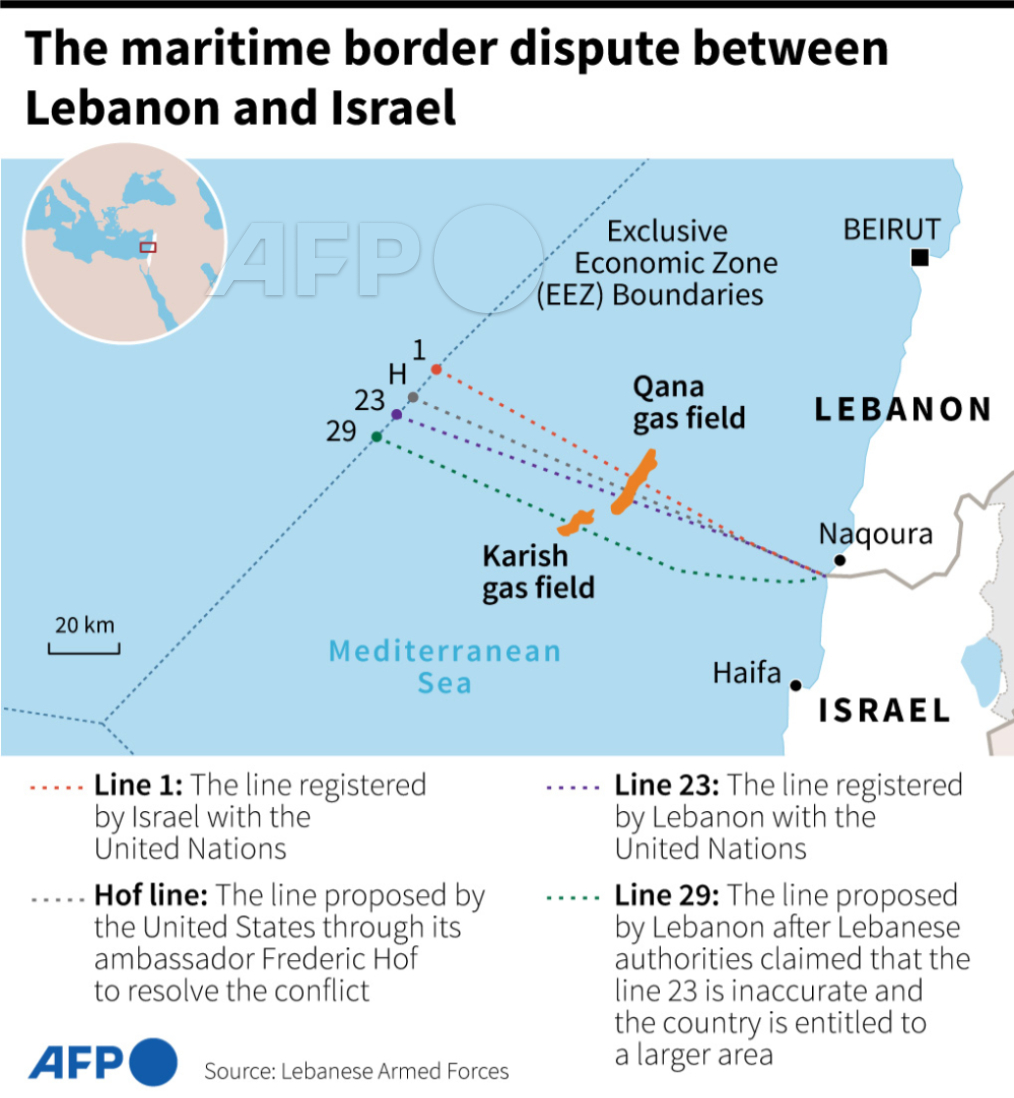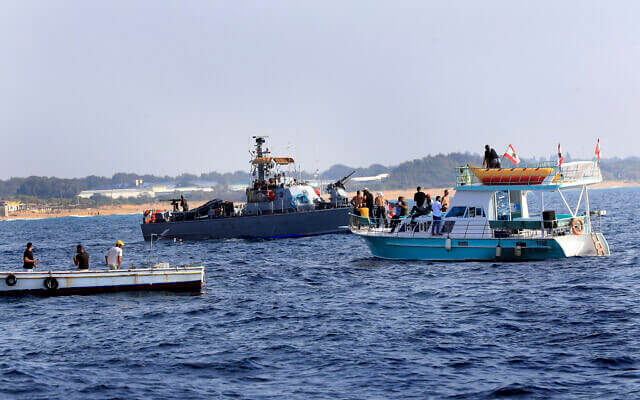Israel on Thursday put its troops stationed in the north on high alert for possible Hezbollah attacks after Prime Minister (PM) Yair Lapid rejected Lebanese demands for a maritime deal.
Israeli Defence Minister Benny Gantz told security officials, including military chief Aviv Kohavi, that Israel should be vigilant for all possible scenarios and thus directed the Israel Defence Forces (IDF) to prepare both “offensively and defensively” for attacks from Lebanon. Gantz stressed that Israel will protect its infrastructure regardless of the outcome of negotiations, referring to the Karish offshore natural gas field in the Mediterranean. “If Hezbollah tries to harm [Israeli infrastructure or sovereignty], the military cost to Lebanon and Hezbollah will be very high,” he said.
Similarly, David Barnea, the head of Israel’s intelligence agency, Mossad, warned that Hezbollah would likely attempt a “limited attack” on the Karish gas field. Barnea told government officials not to take the previous threats of Hezbollah lightly, saying that Hezbollah chief Hassan Nasrallah could order an attack to show that he remains steadfastly committed to his promises.
So what begins as a way to stabilize, secure, make peace over energy...everyone benefits...leads to groups like Hezbollah having a stake...and a veto...and there being a right to "war" if Israel doesn't do things...
— Seth Frantzman (@sfrantzman) October 6, 2022
The warnings follow PM Lapid’s rejection of Lebanese demands to reach a deal on the Karish gas field. While Lapid’s office did not release a statement in this regard, Israeli officials told the media that the PM rejected the modifications demanded by Lebanon, as they go against Israel’s security interests in the region. The Lebanese demands have not been made public.
Officials said Lapid insisted that Israel’s security matters the most and asserted that he would not compromise this even if it led to the deal’s failure. Lapid also warned Hezbollah against launching any attack. “We [Israel] must be prepared for any external threat, and we must prepare together. If we allow ourselves to be divided in times of relative quiet, we will not know how to stand together in times of war,” the PM said in a speech commemorating the Israeli soldiers who died during the 1973 Arab-Israeli war.
Lapid’s made the comments about unity after former PM Benjamin Netanyahu tweeted that it was his pressure that led to Lapid rejecting the deal. He accused Lapid of folding to Hezbollah’s pressure tactics. “Israel needs a different leadership, an experienced and strong prime minister who withstands pressure and does not fold in the face of threats. We will not let Israel surrender to Nasrallah,” Netanyahu remarked. Netanyahu has remained opposed to any deal with Lebanon.
Netanyahu is “on the same side” as Nasrallah, says Israel’s Deputy Foreign Minister, @idanroll, because they are both against the Lebanon-Israel agreement. | I don’t think that is going to be a winning argument! https://t.co/tAOrMeqiRb
— Mike (@Doranimated) October 6, 2022
The rejection of the deal is surprising, given that Israel, Lebanon, and the United States stated just weeks ago that a deal was imminent and that negotiations were in the final stages.
However, despite Israel’s rejection, American and Lebanese officials insisted that talks had not collapsed. The deputy speaker of Lebanon’s parliament, Elias Bou Saab, noted that Lebanon would only respond to official statements, not media reports. He acknowledged, however, that while talks on a deal were 90% complete, the remaining 10% could “make or break” the agreement.
Similarly, the US’ chief mediator, Amos Hochstein, told Lebanon that Israel had rejected only some of Beirut’s demands and not the entire deal.

Israel and Lebanon have long been at loggerheads regarding claims over coastal drilling and exploration rights in the Mediterranean Sea. While both sides started negotiations brokered by the United States and the United Nations in 2011 that focussed on around 860 square kilometres, Lebanon claimed an additional area of 1,430 square kilometres in 2020.
In June, Lebanon condemned the arrival of the Greek floating gas production rig Energean Power in Israel to commence operations at Karish. President Michel Aoun warned Israel that any action or activity in the disputed area would constitute a “provocation” and a “hostile act.”
In 2014, Israel granted Energean a license to operate Karish till 2044. Karish, Hebrew for shark, is estimated to contain 1.4 trillion cubic feet of proven and probable gas reserves.
Against this backdrop, Hezbollah has warned Israel against drilling in Karish. In May, the group launched three armed drones toward the gas field and warned that it would continue to attack Karish unless Israel halted drilling. A month later, Hezbollah chief Hassan Nasrallah said that while the group prefers a diplomatic solution to the dispute, it would not hesitate to attack Karish if Israel continued drilling.

